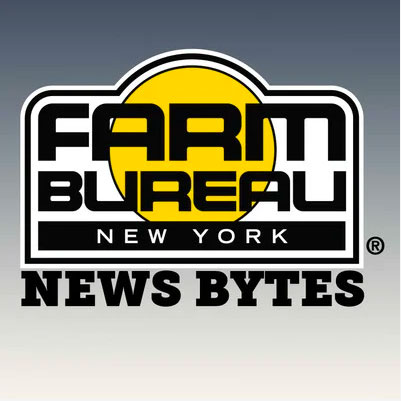New York Farm Bureau Releases 2023 State Priorities
Issues include the need for a budget fix for unemployment insurance debt crisis and the funding of critical farm and environmental programs, a halt to additional minimum wage increases, and support for state procurement plans to buy more New York grown products.
New York Farm Bureau released its 2023 state legislative priorities during a press call today that addressed the needs and challenges of the state’s diverse agricultural community. NYFB President David Fisher and Public Policy Director Jeff Williams highlighted the major issues based on member approved public policy positions.
Farm Labor Needs
The first priority is asking New York State lawmakers to replenish the Unemployment Insurance Trust Fund. This has been a big issue for NYFB members who have been saddled with assessment charges on their quarterly contributions to the unemployment insurance fund.
New York State borrowed billions from the federal government during the pandemic to cover increased UI costs. New York has been the only state that has not begun to make payments on the debt or interest, instead its passing those costs on to employers.
“This is inexcusable. New York must pay its own debts. There seems to be great interest in the legislature to make this happen, and we will continue to make this a priority,” said President Fisher.
NYFB is also concerned about efforts to raise the minimum wage once again. It just climbed a dollar an hour at the end of the year in upstate New York and will likely hit $15 by the end of this year to match what it is in New York City and on Long Island. The farm overtime threshold will begin to drop as well next year, further increasing skyrocketing labor costs. New York State cannot keep making it more expensive to do business in this state, especially when other states are far behind New York’s wage rates. Like all consumers, farms are facing high inflationary costs. Inputs are up across the board for energy, transportation, labor, fertilizer, and supplies.
“Let’s press pause on these annual income hikes and let things settle for the business community. Now is not the time to make it worse,” said Fisher.
State Budget
Another NYFB state priority is securing proper funding in the New York State budget. The governor’s spending plan will be released soon, and NYFB is looking to maintain funding for important animal health, promotion, and research programs along with full funding for the Environmental Protection Fund. The EPF is responsible for helping farms implement best management practices that include soil health and nutrient management programs that protect our land and waterways. This also includes efforts to help our farms meet the state’s climate goals.
NYFB is also hopeful the governor’s proposal for a refundable investment tax credit is included in the final budget. This will incentivize investment, especially coming off of challenging years of low commodity prices and then the pandemic.
“The state budget is an investment into our state’s farms and local food production. We all benefit when we have a strong farming community,” said Fisher.
Support for Increased Markets for New York Grown Products
NYFB would like to continue funding for the Nourish New York program. It has proven to benefit both farms and people in need. It redirects fresh, locally grown food into regional food banks and emergency food pantries while also helping farms offset the costs to produce, harvest, package, and transport the healthy food.
“Nourish NY served as a lifeline during the pandemic, and we must maintain the program that ensures all new Yorkers have access to New York produced food,” said Jeff Williams.
NYFB is also supportive of the governor’s effort to increase state procurement to 30% for New York farm products. It makes sense for New York to support its own farms when purchasing food for its state agencies and institutions. But we also want to make sure that the regulations are not exclusionary or enforce value-based purchasing requirements that are not currently required by state or federal laws.
Extended Producer Responsibility Legislation
NYFB is concerned about the Extended Producer Responsibility legislation. This bill looks to pass the cost and responsibility of recycling packaging away from the consumer and to the source of the product, in this case, farms and food processors who need things like milk containers, wine bottles and food packaging to sell what they produce. This puts an extraordinary financial burden on to the state’s farms and businesses. This would eventually increase the cost of doing business and further drive-up consumer prices.
Direct Sales for Farm Beverages
NYFB is prioritizing legislation allowing for direct-to-consumer shipping for all New York produced farm beverages, including beer, cider, and distillates. Providing direct-to-consumer sales for craft spirts, hard cider and beer would be a new market opportunity for the industry and put craft beverage makers on parity with the state’s wineries that already have the ability to ship to consumers.
“It is imperative that we all work together to expand opportunities and capitalize on what we do well in New York. We have one of the most diverse agricultural sectors in the country. It is worth it to each of us to maintain that strong connection to food and farm production. This benefits our food system, local economies, and overall quality of life in the state.” said Williams.
Click here to view full list of NYFB State Priorities
Click here to view the press conference recording
Click here for downloadable video and audio
-30-
New York Farm Bureau is the State’s largest agricultural lobbying/trade organization. Its members and the public know the organization as “The Voice of New York Agriculture.” New York Farm Bureau’s mission is “Supporting today’s agricultural needs and creating member opportunities for tomorrow through advocacy and education.”



